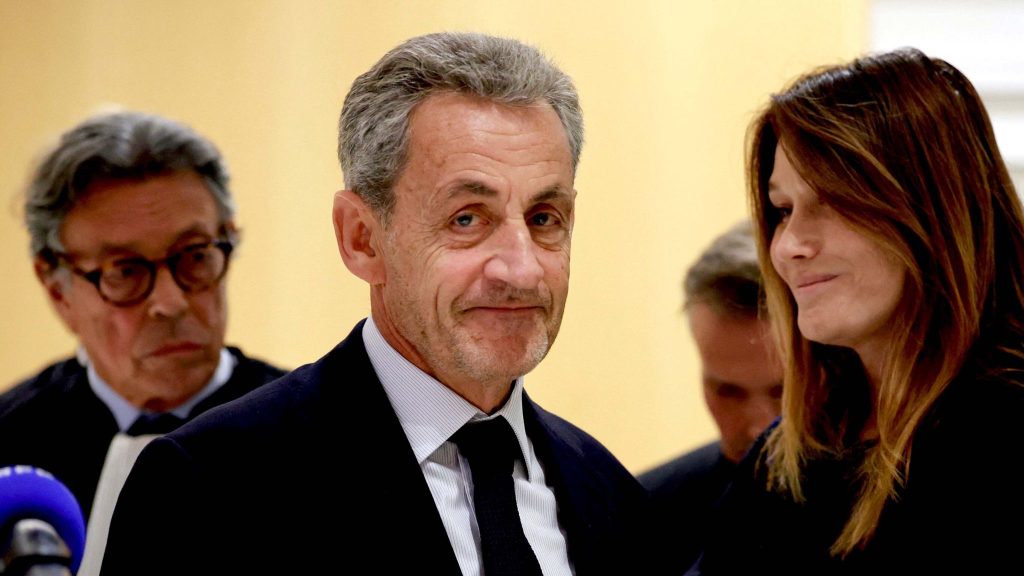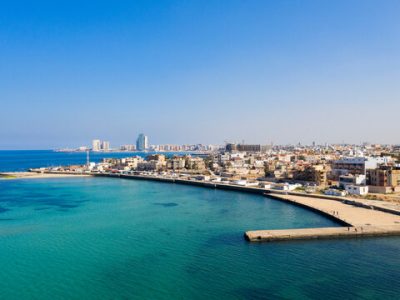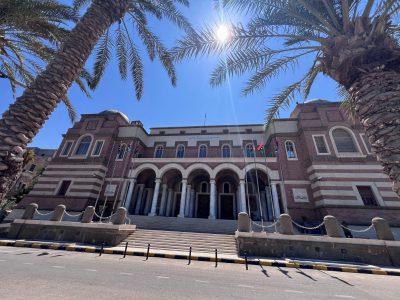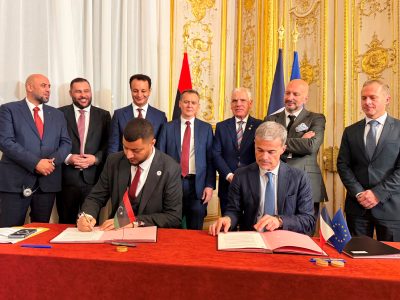Sarkozy Libya Funding Scandal: French Court Jails Former President Over 2007 Campaign Conspiracy
Last month, a French court handed Sarkozy a five-year prison term, finding him guilty of criminal conspiracy in a scheme to finance his 2007 presidential campaign with Libyan funds. The sentence – delivered Sept. 25, 2025 – marked an extraordinary fall for the once‑powerful politician. Sarkozy will be the first post‑war French head of state to be jailed. The disgraced former politician’s team said he will appeal, but French judges have ordered that the term be enforced immediately, meaning he must begin serving the sentence even while appeals proceed.
The French justice system found that Sarkozy’s aides secretly sought cash from the government of the late Libyan dictator. Prosecutors alleged that in 2005, when Sarkozy was Interior Minister, he arranged to support Ghaddafi’s regime on the world stage in exchange for campaign financing. In court, however, the judges emphasized that “there was no proof” any Libyan money ever reached Sarkozy’s campaign coffers. Under French law, a corrupt scheme can be punishable even if the funds are never traced directly to the candidate. In the end, the court convicted Sarkozy only of the conspiracy count, essentially concluding he “allowed his close collaborators” to solicit Libyan aid, and acquitted him of charges like passive corruption or embezzlement. Two of Sarkozy’s former ministers, Claude Guéant and Brice Hortefeux, were also found guilty of criminal association in the affair (though acquitted of other charges). Sarkozy, who left office in 2012 and has denied wrongdoing, called the verdict a scandal and insisted the investigation was politically motivated.
Background: Allegations of Libyan Funding
The Libya financing saga dates back more than a decade. In 2011 – the year Ghaddafi’s government fell – Libyan officials and Ghaddafi himself publicly claimed that the Libyan state had secretly poured millions of euros into Sarkozy’s 2007 campaign. Those allegations rested on several pieces of evidence gathered by French investigators. In 2012 the news site Mediapart published what it said was a Libyan secret-service memo from December 2006, referring to a 50 million EUR deal in principle to back Sarkozy. Investigators also traced financial transfers and examined the diaries of Shukri Ghanem, Libya’s former oil minister (who died under mysterious circumstances in 2012). Witness statements recounted trips by Sarkozy’s aides to Libya in 2006–07, and a middleman claimed to have carried suitcases of cash (though he later retracted his testimony).
The Paris trial – a special criminal court convened for the case – peeled back many layers. Judges noted the timing of certain Libyan transfers was compatible with Sarkozy’s campaign, but they found the money’s routes to be “very opaque”. In practice, no document definitively proved a payment to Sarkozy himself. In fact, the presiding judge explicitly said there was no proof that Sarkozy struck any deal with Ghaddafi or that Libyan funds directly financed his election bid. Still, under French anti-corruption law he could be convicted for conspiring with subordinates to seek the funds. Sarkozy’s defense highlighted the gaps in the evidence and argued the accusations arose from Libya’s post-2011 chaos. He remains free pending appeal, but the sentence – once enforced – could be carried out at a French prison even as appeals are heard.
The case concludes the most exhaustive phase of a long probe. Over 150 people and companies were interviewed during the investigation, which spanned three French presidencies. By the time of the verdict, Sarkozy had already faced two separate convictions (on corruption and on a domestic campaign-finance scandal), for which he received a suspended sentence and house arrest term. His high-profile trials have been watched closely in both France and North Africa.
Libyan Perspectives and Economic Context
In Libya, opinions on the verdict have been mixed but thoughtful. The affair resurrects questions about how Ghaddafi’s regime spent its oil wealth. Regional press and commentators note that some Libyans feel vindicated by the French judgment – seeing it as confirmation that Ghaddafi’s regime was indeed buying influence abroad. Others worry that the money might as well have been spent at home. For example, Asharq al-Awsat quotes Libyan political figures saying the funds “would have been better spent developing Libya” during Ghaddafi’s 40-year rule. One analyst called Qaddafi’s foreign ventures “uncalculated adventures” driven by personal glory, even while admitting that Sarkozy’s 2007 visit to Paris had helped break Libya’s isolation. Still, many Libyans agree on one point: billions of dollars were diverted under Ghaddafi in opaque deals, and the Sarkozy verdict shines a spotlight on those secret expenditures.
Interestingly, some commentators framed the issue in broader geopolitical terms. One defender of Gaddafi’s era noted that securing Sarkozy’s favor could be seen as a bid to court a powerful ally on the UN Security Council, at a time when Libya sought to rehabilitate its international standing. Another writer argued that Qaddafi’s outreaches extended beyond Libya’s interests to a vision of African and Arab unity. At the same time, critics counter that Qaddafi often treated state assets as if they were his own, pursuing diplomatic campaigns that did not always benefit ordinary Libyans. In any case, the debate highlights Libya’s domestic challenges: the country still struggles with basic needs (roads, hospitals, jobs) that many feel should have taken priority over foreign intrigues.
For Libya’s divided governments in Tripoli and Benghazi, the Sarkozy case is a distant concern. Neither the Government of National Unity nor the eastern House of Representatives has publicly commented on the French verdict. Both sides are primarily focused on reviving Libya’s war‑battered economy and attracting foreign investment – including from France, which remains a key trading partner. France under Sarkozy sold arms and negotiated oil deals with Ghaddafi’s Libya; now new French leaders (and French companies like Total) are evaluating opportunities in post‑Ghaddafi Libya. How the Sarkozy verdict affects France–Libya relations is unclear. In theory it underscores European resolve to punish corruption, which may reassure Libyans pushing for more transparency. In practice, Libyan officials are likely more concerned with securing stable contracts, rebuilding infrastructure, and expanding oil production.
For Libyans, The Sarkozy sentencing is being read less as a monumental legal event than as a distant echo of the old regime. It serves as a reminder of Ghaddafi’s secretive rule and of Western involvement in Libya’s past. For Libya, the moral may be twofold: that even powerful foreign leaders can be held accountable, and that Libya’s own leaders must manage the country’s wealth carefully. Analysts hope the case will boost momentum for stronger anti-corruption measures – in France and, by extension, in Libya as the country continues to rebuild its institutions and economy.




